Your hour-by-hour good sleep plan
What would you say if we told you that by following our simple hour-by-hour plan today, you could sleep better tonight? Your daily routine could be stopping you sleeping, so follow our hourly plan to sleep better tonight!
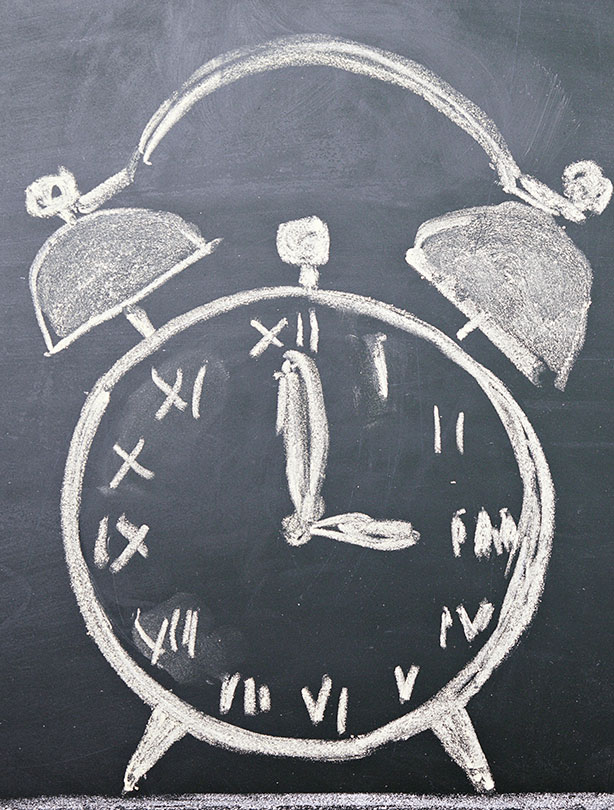
What would you say if we told you that by following our simple hour-by-hour plan today, you could sleep better tonight? Your daily routine could be stopping you sleeping, so follow our hourly plan to sleep better tonight!
Oh sleep, where have you gone? Why is it that we spend the entire day absolutely positive we could fall asleep at the drop of a hat (or the sight of a comfy chair in our case) and yet as soon as bedtime comes, sleep disappears?
Whether you lie awake waiting for sleep to show up or drift off easily but wake up throughout the night, we have good news: there is a way you can beat night time sleep problems for good. And do you know what? It's all about your daily habits!
Read more: Most common dream meanings
By following our simple hour-by-hour plan throughout the day you could not only wake yourself up the right way, but set yourself up to sleep better, too. No sheep counting needed! (Sorry sheep).
Do you suffer with getting good sleep? What works for you when you're feeling sleep-deprived? Let us know in the comments box below!
6am: Sound the alarm
Waking up at the same time every day can really boost your sleep schedule. If you're getting enough sleep then you should wake up naturally without an alarm, and if you wake up feeling overtired and spend most of the day desperate for a nap, then you may need to set an earlier bedtime.
GoodtoKnow Newsletter
Parenting advice, hot topics, best buys and family finance tips delivered straight to your inbox.
If you do rely on your alarm to get you up and out of the sack in the morning (you're not the only one!), then set your alarm to a sound you actually like. There's nothing worse than a shrill sound first thing, so setting it to your favourite song or some calming music can work wonders for waking you.
7am: Scrub up

Using a gentle face scrub daily has multiple benefits, one of which is the power it has to wake you up first thing in the morning! Exfoliating not only makes skin brighter, fresher and softer by removing dead skin and unclogging pores, but the scrub itself can be really uplifting and awakening, especially if you choose one with a fresh and fruity scent like Neutrogena's pink grapefruit scrub. A wake up call for you and your skin!
Make sure you avoid face scrubs with larger 'jagged' pieces, like apricot pits or walnut shells, as these can actually damage your skin.
8am: Good food

Did you know that eating breakfast as early as you can could help to promote better sleep? And we're not talking about any old breakfast here, so put down the cereal bars and back away from the cocopops! Starchy, fatty or sugary foods can stress your body, so you are more likely to feel sluggish and lethargic later on in the day.
Eggs are good because they're high in iron and protein to give you energy throughout the day. Wholegrains are also a great breakfast option because the complex carbohydrates, fibre, B-vitamins and iron will give you energy. Bananas are known to slow digestion and stablise blood sugar levels, so how about bran flakes with banana for breakfast tomorrow?
9am: Get moving
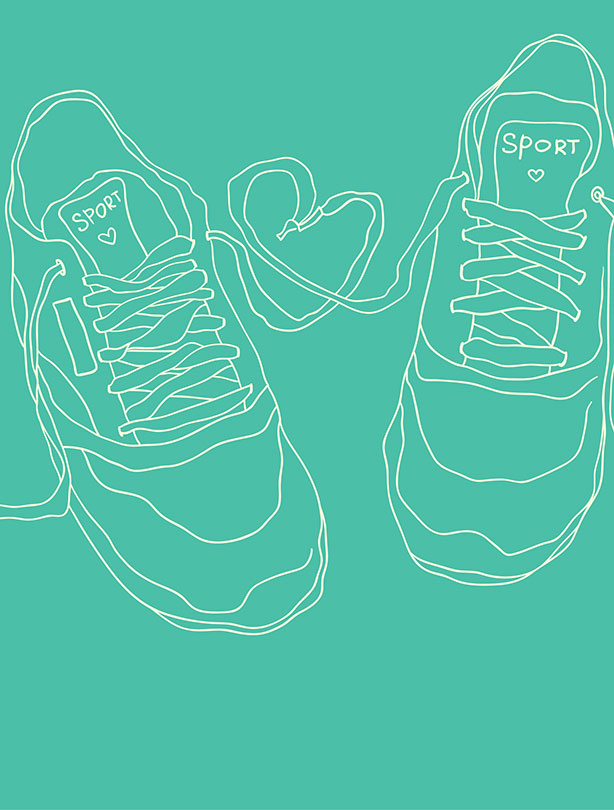
Ok so we know this one probably comes as no surprise, but hear us out! There are so many reasons why just a little bit of exercise is good for us, and a good night's sleep is one of them.
We're not talking about running a marathon or killing yourself in the gym here - just a bit of simple exercise will do. Jogging with the dog round the park, walking the kids to school, going to an aerobics class or trying a fitness dvd at home can not only wake you up, but help to produce mood-lifting and increase your metabolism. Make sure it's earlier in the day rather than last thing at night though, as exercise produces stimulants that stop the brain from relaxing quickly.
10am: It's what's inside that counts
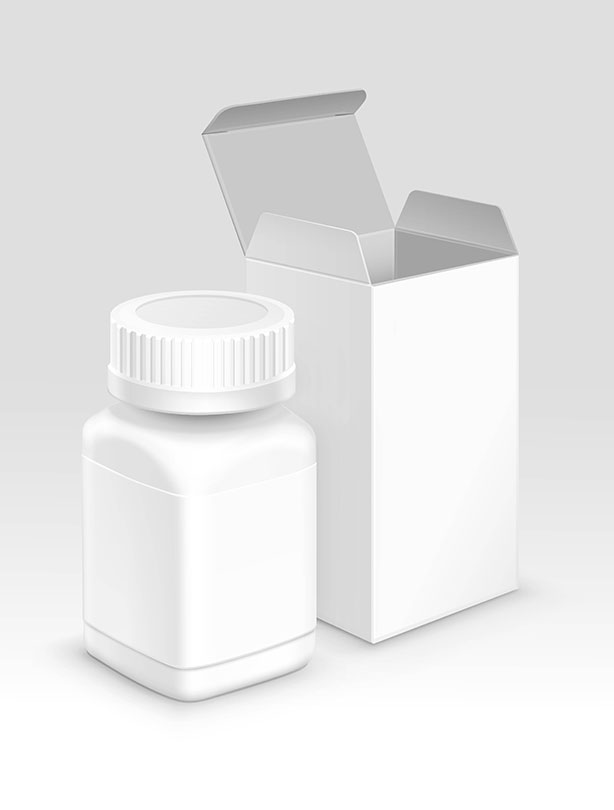
According to Nutritional Therapist Marek Doyle, there is one thing that, over 90 percent of the time, fixes sleep problems within 24 hours - and that's magnesium.
'It plays an important role in hydration, muscle relaxation, energy production and, crucially, the deactivation of adrenaline' explains Doyle, while Dr Mark Hyman says to think of magnesium as the relaxation mineral. 'Anything that is tight, irritable, crampy, and stiff - whether it is a body part or even a mood - is a sign of magnesium deficiency.' So if you really suffer with nodding off at night, taking a magnesium supplement might just make all the difference.
Take two tablets a day with your morning juice and see if it helps you nod off later!
11am: Dear Diary

Understanding where your sleep problem stems from is the first step in ridding you of your sleepless nights for good. By keeping a sleep diary you might uncover habits or experiences in your daily activities that contribute to your lack of shut-eye. So grab a warm drink, take a seat and start writing.
If you get stuck, then the NHS has set out some suggestions of things to think about while you write, such as how long did you sleep for, did you take sleeping tablets, did you drink alcohol before bed and so on. Take your diary to the doctor with you if you're worried about insomnia. By taking a good look at your day-to-day routine it might be easier to identify the problem and stop it for good!
12pm: Quit stressing

Feeling stressed or anxious is a key reason for sleeplessness and insomnia. We all have our day-to-day worries and telling you just to forget them is a hell of a lot easier said than done, but how about addressing each of the things that's stressing you out and taking steps to sort them?
If the house is a mess, decide on a couple of jobs a day that could make a big difference to the way you feel by the time the weekend is here, or speak to your partner or a friend about something you're worrying about. By breaking things down into manageable chunks and sharing your worries, your load will feel lighter and sleep will come quicker!
1pm: Soak up some rays

No, we're not suggesting you board a plane and jet off to the Caribbean here (although that would be nice wouldn't it?). Although this time of year isn't exactly spoiling us for sunshine, getting just a few rays during the day can work wonders for your body clock.
Exposure to sunlight can help to keep something called our 'circadian rhythm' going, a mechanism that causes drowsiness at night and wakefulness during the day. 'For great sleep, you need a lot of light in the day and a very dark bedroom at night,' says Dr Rubin Naiman, director of Circadian Health Associates. 'I always suggest patients take a daytime walk, even if it's raining, to expose their brain and body to full-spectrum daylight.'
2pm: Nap time

While finding the time to have a quick nap in the afternoon might be mission impossible on most days, it's thought that getting a little bit of catch up sleep in the daytime can work wonders for you.
Sleep specialist Dr Rahul Mukherjee explains that napping can be a good thing. 'All necessary sleep is restorative. We have a need for a normal amount of sleep. If people don't sleep enough at night and have some restorative sleep during the day that's perfectly fine.'
So what's the best time of day for a sneaky power nap? Mid-afternoon when you tend to feel a slump, and the optimum amount of shut eye is 30 mins to ensure you feel at your best.
3pm: Prep your room
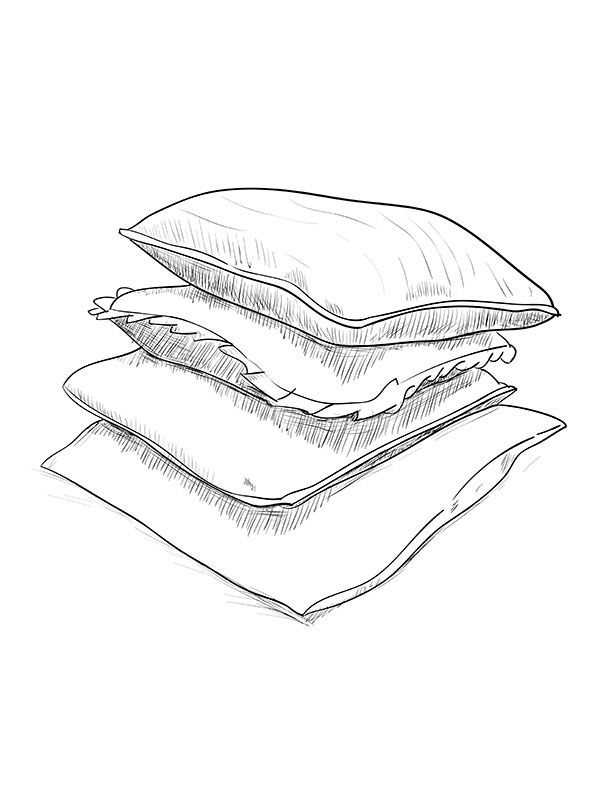
Making your room nice and cosy is key if you want to get a good night's sleep tonight. If you feel comfortable and relaxed when you hit the sack then the chances of you drifting off are much higher. Decluttering your sleeping space can help to declutter your mind when it comes to bedtime, so have a tidy round, move the tv to another room, and ban radios, laptops and anything that might fill your mind instead of emptying it.
We all know there's nothing better than freshly cleaned sheets, so give them a spruce and for an extra sleepy treat when you climb into the covers tonight try a fabric conditioner with a lavender scent - you'll be snoozing in no time!
4pm: Cut the caffeine
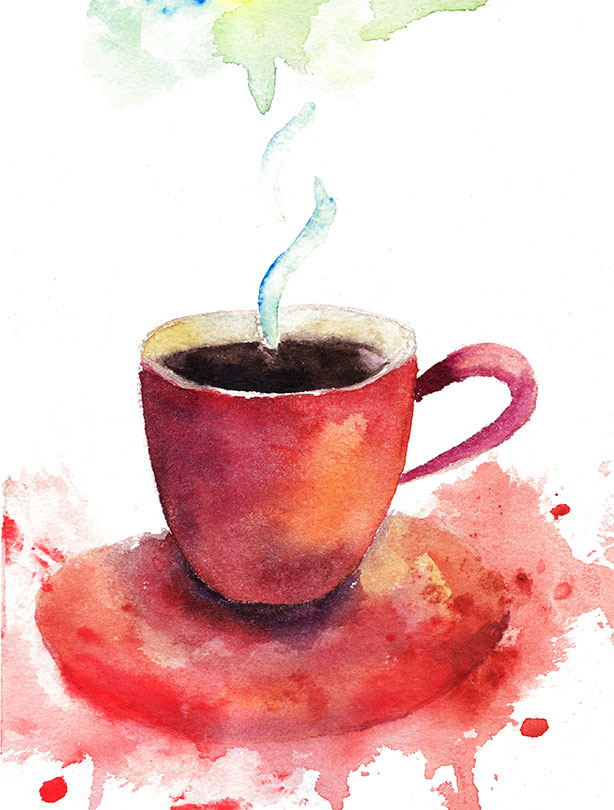
Did you know that the effects of caffeine can last for up to 12 hours after your cup of tea, coffee or coke? And there was us thinking that avoiding that late night cuppa was going to help us sleep! Professor Christopher Drake of Wayne State University in Detroit says that you should probably avoid caffeine after 5pm if you want a good night's sleep. 'Drinking a big cup of coffee on the way home from work can lead to negative effects on sleep just as if someone were to consume caffeine closer to bedtime.'
Cutting out the caffeine as early in the day as you possibly can will ensure you drift off much easier at night! Try it today and see if it makes a difference.
5pm: And stretch

While other more rigorous forms of exercise could affect your sleep when done too late in the day, yoga is a great exercise for the afternoon because it will help you to feel relaxed and ready for a better night's sleep.
Stretching is known to have a calming affect, and yoga instructor Darcie Clark believes it could really help to de-stress from your day. 'When you slow down and stay in a pose you can feel different areas of the body that are tense and holding on from your day and gradually let that go as you sit and breathe through the pose.'
Try our yoga evening sequence to see if it helps to get you some z's!
6pm: Eat right, sleep tight

There are certain foods that can actually aid sleep, so choosing the right grub at dinner time could really make a difference if you're suffering in the sleep department! Foods that aid sleep include yogurt, milk, cheese, oats, bananas, poultry, eggs, peanuts and tuna as they all contain a good amounts of tryptophan (the amino acid used by the body to produce serotonin, which, when levels are high, can help you to sleep better).
Allow at least three hours after you eat before you hit the sack, because digestion slows down at night, and a full stomach may interrupt sleep. Make sure your dinner contains chicken, opt for a banana for dessert and you'll be feeling relaxed and bed-ready before you know it.
7pm: Don't give in to drowsiness

Ok, so this is the part where we actually tell you NOT to sleep. But it's for a good reason! No matter how tempting a post-dinner nap in front of the tv after a long hard day might be, try to resist.
If you find yourself getting drowsy then get up and do something to take your mind off it - help the kids with their homework, do the ironing, call a friend, get clothes ready for the next day. Just make sure it's something mildly stimulating because if you do give in, you may wake up later in the night and have trouble getting back to sleep.
8pm: Avoid alcohol

You know what they say about a nightcap just before you go to bed? Well forget it! Because although an alcoholic drink may help you drift off to sleep, too much of it can decrease the REM sleep you need and will play havoc with your natural sleep rhythm. Alcohol also causes your blood sugar levels to drop meaning you're likely to wake up in the middle of the night, and as if that wasn't bad enough it is also dehydrating, so you could wake up thirsty in the night too!
Swap your evening alcoholic tipple for warm milk. Milk contains sleep-promoting tryptophan plus calcium, which is known to reduce stress and therefore send you off to sleep worry-free!
9pm: Wind down
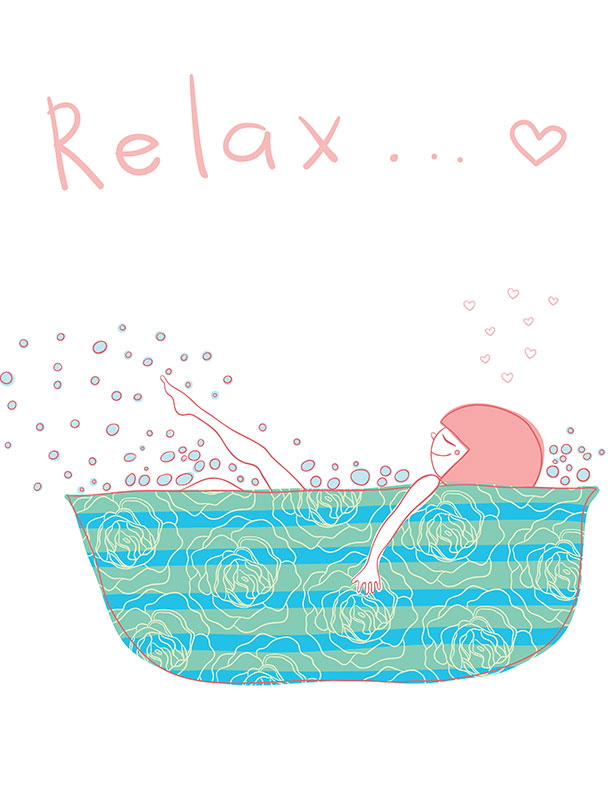
When was the last time you took the chance to steal half an hour in the evening all for yourself, and enjoy a soak in the bath? Having a relaxing bedtime routine can work wonders when it comes to a good night's sleep, and a hot bath is a good place to start. Your body temperature naturally lowers at night, so taking a bath two hours before bed will mean a bigger drop in temperature at bedtime and a deeper sleep.
Try a bath soak specially designed to unwind you, like Radox's Relax with lavender and waterlily. We can feel our stresses floating away already!
10pm: Room to breathe

If you struggle to drift off at night, then there's a really simple breathing technique you can try.
According to American scientist Dr Andrew Weil, he can get insomniacs to slip into a slumber in just 60 seconds, without the need for prescription drugs or strange lighting, using the 4-7-8 breathing technique. He describes it as 'utterly simple, takes almost no time, requires no equipment and can be done anywhere.' Sounds good to us!
To try the breathing technique yourself, you first need to place the tip of your tongue on the roof of your mouth just above your teeth, and keep it there throughout the exercise. You then need to exhale completely through your mouth while making a 'whoosh' sound.
Now close your mouth and inhale quietly through your nose while counting to four in your head. And then hold your breath for a count of seven.
After this, exhale completely through your mouth, making another whoosh sound for eight seconds in one large breath. Now inhale again and repeat the cycle three times for a total of four breaths.
Try it tonight and see if it sends you off, and read onto the next slide to continue your hour-by-hour good sleep plan.
Counting your breathing sounds a lot more productive than counting sheep anyway...
11pm: Deep sleep

It's bedtime, finally! But a couple of things before you turn the light out. Make sure your bedroom is completely dark (your brain secretes more sleep-promoting melatonin when it's dark) so invest in a blackout blind if you get light from the street into your room, and turn off gadgets that give light or blink.
It's easy to let the day's stresses and worries float through your mind and keep you up at night, so keep a note pad by your bed to jot things down, you'll be surprised at how much this helps.
And last but not least, indulge in some bedtime relaxation with The Body Shop's dreamy pillow and body mist - the perfect soothing atmosphere for sleepy time.
Night night!